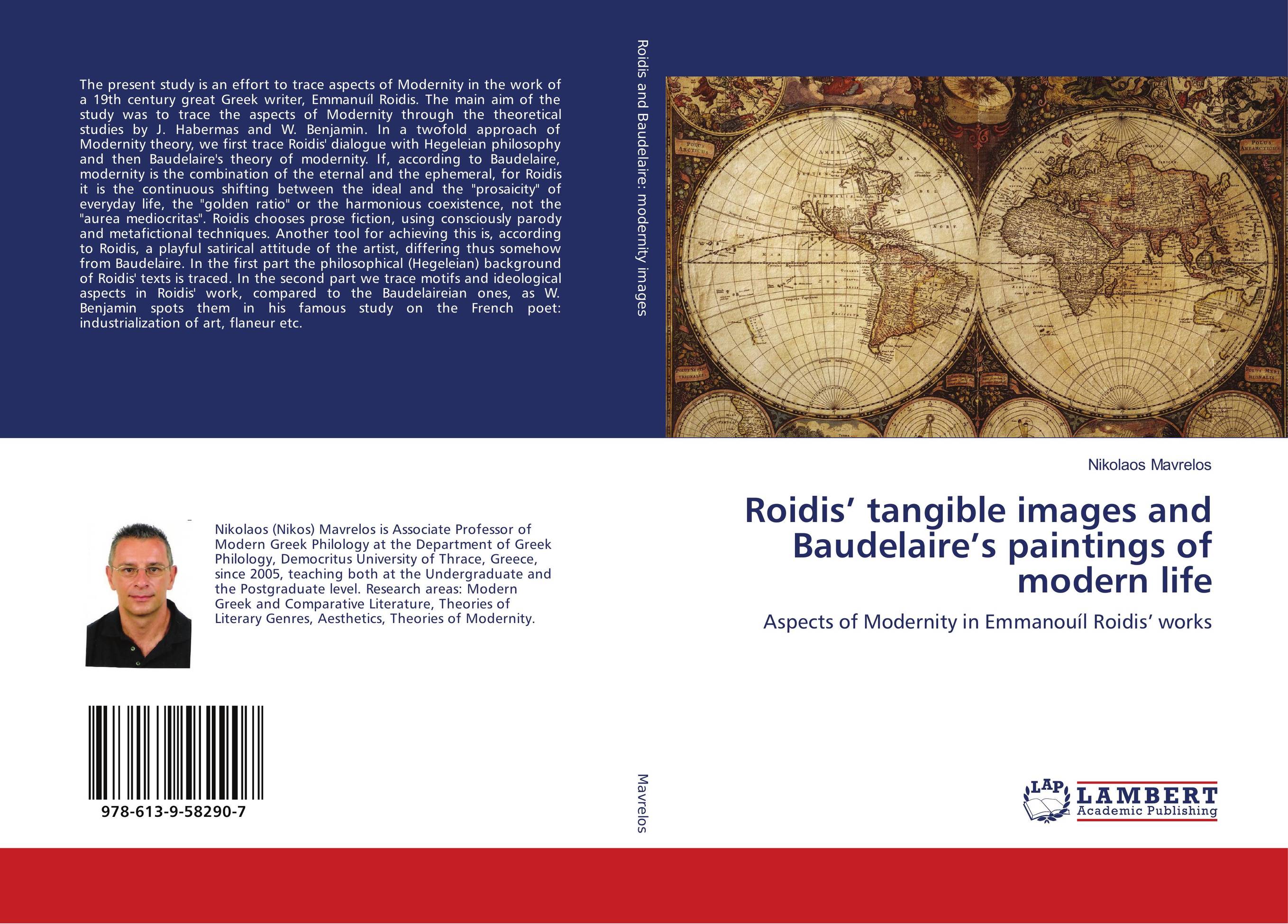| Поиск по каталогу |
|
(строгое соответствие)
|
- Профессиональная
- Научно-популярная
- Художественная
- Публицистика
- Детская
- Искусство
- Хобби, семья, дом
- Спорт
- Путеводители
- Блокноты, тетради, открытки
Roidis’ tangible images and Baudelaire’s paintings of modern life. Aspects of Modernity in Emmanou?l Roidis’ works

В наличии
| Местонахождение: Алматы | Состояние экземпляра: новый |

Бумажная
версия
версия
Автор: Nikolaos Mavrelos
ISBN: 9786139582907
Год издания: 2018
Формат книги: 60×90/16 (145×215 мм)
Количество страниц: 176
Издательство: LAP LAMBERT Academic Publishing
Цена: 28297 тг
Положить в корзину
Позиции в рубрикаторе
Отрасли знаний:Код товара: 226411
| Способы доставки в город Алматы * комплектация (срок до отгрузки) не более 2 рабочих дней |
| Самовывоз из города Алматы (пункты самовывоза партнёра CDEK) |
| Курьерская доставка CDEK из города Москва |
| Доставка Почтой России из города Москва |
Аннотация: The present study is an effort to trace aspects of Modernity in the work of a 19th century great Greek writer, Emmanu?l Roidis. The main aim of the study was to trace the aspects of Modernity through the theoretical studies by J. Habermas and W. Benjamin. In a twofold approach of Modernity theory, we first trace Roidis' dialogue with Hegeleian philosophy and then Baudelaire's theory of modernity. If, according to Baudelaire, modernity is the combination of the eternal and the ephemeral, for Roidis it is the continuous shifting between the ideal and the "prosaicity" of everyday life, the "golden ratio" or the harmonious coexistence, not the "aurea mediocritas". Roidis chooses prose fiction, using consciously parody and metafictional techniques. Another tool for achieving this is, according to Roidis, a playful satirical attitude of the artist, differing thus somehow from Baudelaire. In the first part the philosophical (Hegeleian) background of Roidis' texts is traced. In the second part we trace motifs and ideological aspects in Roidis' work, compared to the Baudelaireian ones, as W. Benjamin spots them in his famous study on the French poet: industrialization of art, flaneur etc.
Ключевые слова: Flaneur, Hegel, metafiction, modernity, Roidis, Baudelaire, 19th century novel, Modern Greek prose fiction



